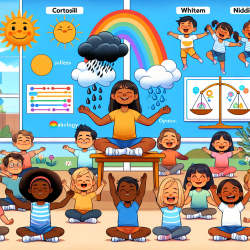Understanding the Impact of Childhood Adversity on Risky Behaviors
Childhood adversity, often referred to as Adverse Childhood Experiences (ACEs), has been widely studied for its profound impact on the development of risky behaviors in young adults. The recent study titled "Childhood Adversity and Risky Behaviors among Chinese Rural Young Adults: The Mediation Effect of Perceived Stress and Moderation Effect of Social Support" offers critical insights into these dynamics, particularly in the context of rural China.
The Study's Key Findings
This study, conducted with 1091 rural young adults in China, utilized a web-based survey to explore the relationships between ACEs, perceived stress, social support, and various risky behaviors. The findings confirmed that:
- Increased ACEs values correlate with a higher likelihood of engaging in risky behaviors.
- Perceived stress significantly mediates the relationship between ACEs and risky behaviors.
- Social support did not significantly moderate the pathways from ACEs to risky behaviors through perceived stress.
Practical Implications for Practitioners
For practitioners working with young adults, especially those in rural settings, these findings highlight the importance of addressing both the direct and indirect effects of ACEs. Here are some actionable steps:
- Implement Stress Reduction Programs: Since perceived stress mediates the impact of ACEs on risky behaviors, developing interventions that focus on stress management can be beneficial.
- Enhance Mental Health Services: Expanding access to mental health resources in rural areas can help mitigate the negative outcomes associated with ACEs.
- Focus on Comprehensive Interventions: Programs should address multiple risky behaviors simultaneously, as they often co-occur.
Encouraging Further Research
While this study provides valuable insights, it also opens avenues for further research. Future studies could explore additional mediating factors such as depression and resilience, or examine the role of social support using different methodologies to better understand its potential buffering effects.
To read the original research paper, please follow this link: Childhood Adversity and Risky Behaviors among Chinese Rural Young Adults: The Mediation Effect of Perceived Stress and Moderation Effect of Social Support.










